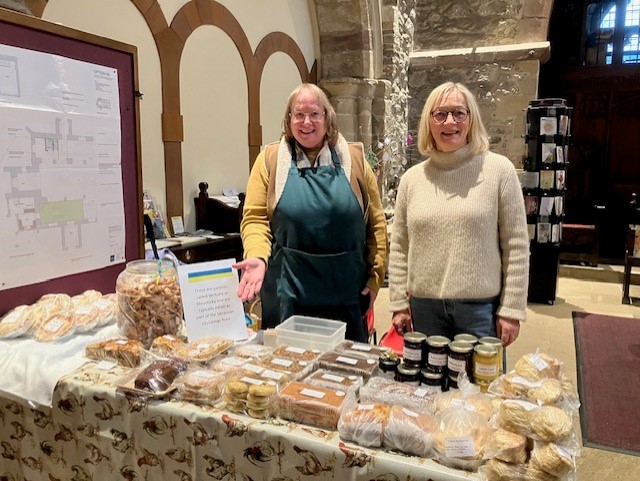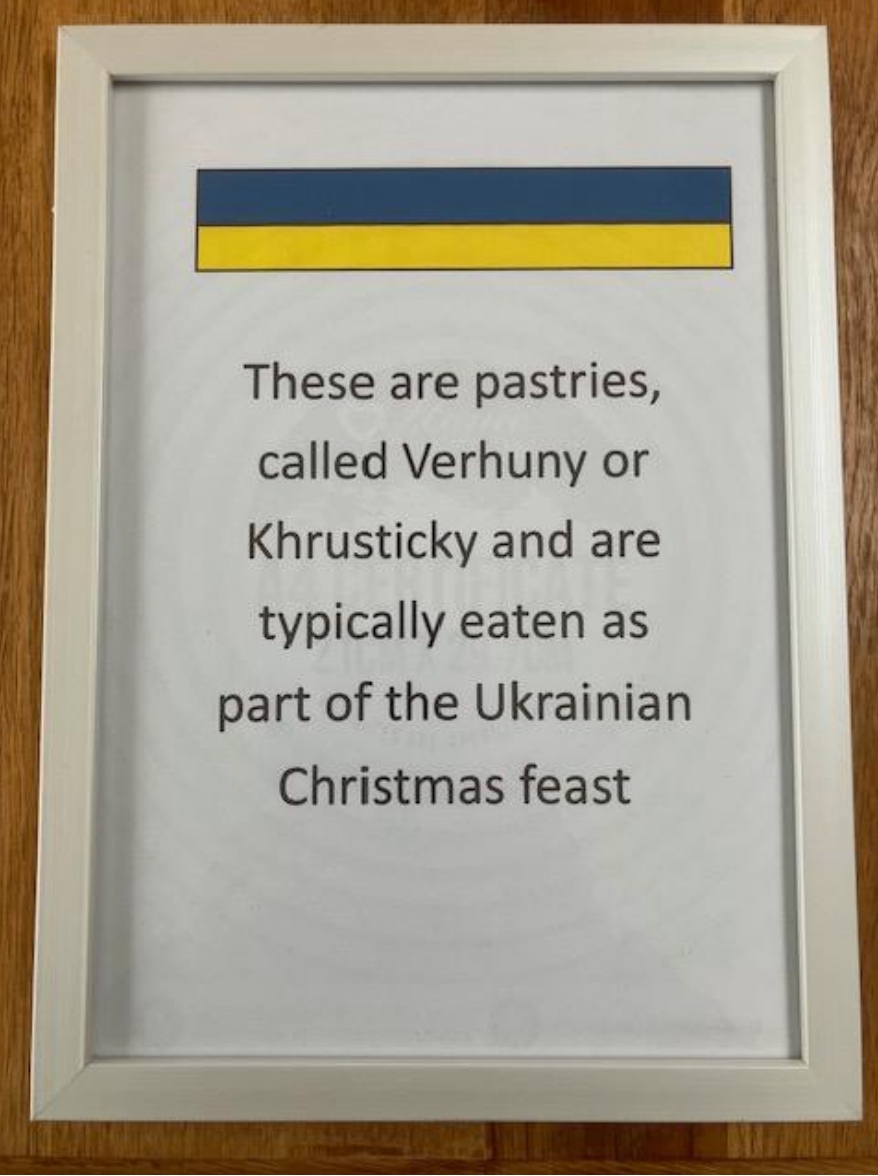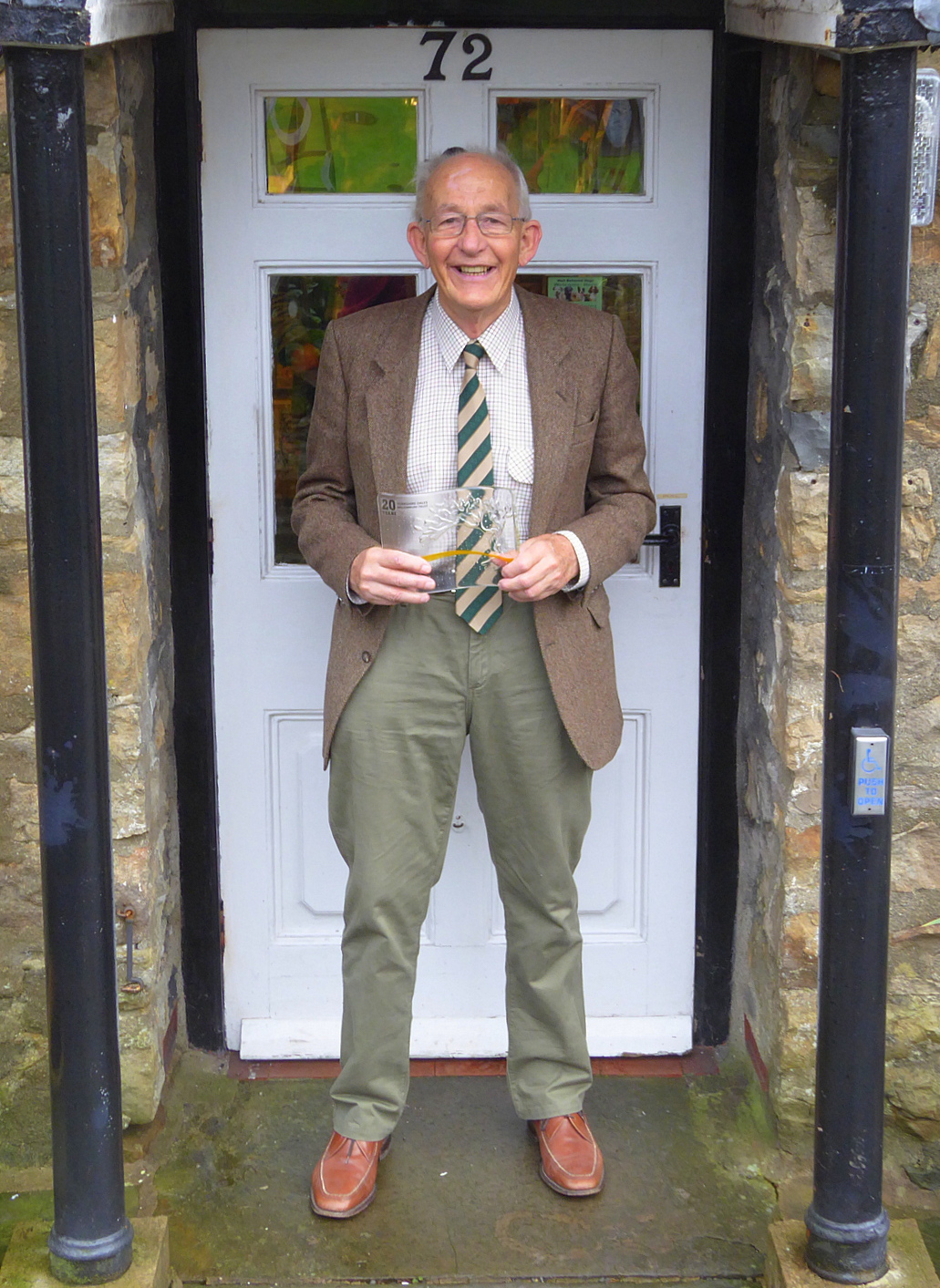In the quiet town of Sedbergh, nestled in the rolling hills of northwest England, the blue-and-yellow flag of Ukraine flies proudly from the church tower. For most residents, it’s a symbol of solidarity — but for Douglas, 82, a retired agricultural advisor (Douglas spent decades helping farmers grow food more efficiently and improve wildlife habitats), it became a call to action.
“Flying the flag is nice,” Douglas says, “but it doesn’t help Ukrainians. I thought, "we should do something more.”
So he did. Drawing on a classic British tradition — the coffee morning — on September 17 Douglas turned a simple community gathering into a lifeline of support for Ukraine. Coffee mornings are a cherished custom across England, where neighbors meet over coffee, tea, and homemade cakes to raise funds for good causes. But this time, the cause was far from home.
“I wanted to do something practical,” Douglas recalls. The response exceeded all expectations, Douglas’s event brought in £849, a record for the town. Douglas donated the proceeds to Leleka Foundation. For Douglas, the motivation runs deeper than charity. “Even if the war ended tomorrow, Ukraine’s rebuilding will take years,” he says. “Medical aid will always be needed. This was something small I could do to help.”
Leleka: Why did you decide to support Leleka?
Douglas: Sedbergh is a small town in the northwest of England, with a population of about 3,000. We fly the Ukrainian flag from the church tower, but of course, that alone doesn’t help Ukrainians much.
Here in England, there’s a lovely tradition called a coffee morning. People gather to have coffee and cakes, but the real purpose is to raise money for a cause. Different organizations host these events throughout the year — the local hospice, the British Legion, charities — everyone takes a turn.
I thought, we can do more than just fly a flag for Ukraine. Three wonderful ladies volunteered to help. Two of them are excellent cooks — if you’re ever here, you must try their cakes! We also have a Ukrainian couple. They made traditional Ukrainian pastries called verhuny for the coffee morning. Delicious! Another lady runs the raffle, and I organize everything else. I also contact friends and spread the word.
Usually, a coffee morning in Sedbergh raises around £150–£200. But this time, we managed to raise £849 — a record for our town!

Interviewer: That’s incredible! What do you think made this one so successful?
Douglas: Two things. First, I really promoted it — I advertised it in the local newspaper and on social media, and I personally invited friends. Second, people wanted to do something to help Ukraine, but often they didn’t know how.
It’s easier for someone to come to a coffee morning, have a chat, maybe buy a cake, and drop £10 or £20 into the donation box. Some people even left brown envelopes marked simply “Ukraine” through my letterbox — no name, just a contribution. One lady even gave £100!
Interviewer: That’s wonderful. How did you find out about Leleka?
Douglas: I came across Leleka while looking online for trusted organizations supporting Ukraine. I found your name listed. What caught my eye was that Leleka focuses on medical aid, not weapons, which makes it easier to fundraise here.
And I was delighted to see that you have a UK bank account. That made donating so simple — just a quick transfer, no currency conversion, no fuss.
You’re doing vital work. Even when the war ends, Ukraine’s rebuilding effort will be enormous. Medicines and medical aid will still be needed for years.
I write short reports after each event for the local paper to thank people and encourage others. Maybe next year, we can get more towns to organize coffee mornings for Ukraine.
Interviewer: That’s so touching. Can you tell me a bit about yourself?
Douglas: I’m 82 years old. I was married, but my wife passed away six years ago. She was an expert in animal nutrition — helped farmers feed their pigs more efficiently. My background is in agriculture. I worked as an advisor, helping farmers grow food more efficiently and increase wildlife on their farms.
I also used to play hockey, squash, and rugby — not anymore, of course — but I stay active and busy. My wife used to ask, “Douglas, which one are you giving up?” because I was always doing too much. When I look back, I’m proud of the things I’ve done — and organizing something like this for Ukraine gives me that same sense of purpose.
If my story inspires others to hold their own coffee mornings for Ukraine, then that’s the best outcome I could hope for.



 УКР
УКР 